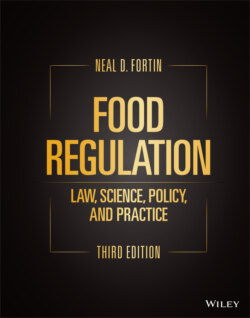Читать книгу Food Regulation - Neal D. Fortin - Страница 221
Relative Claims83
ОглавлениеA relative claim is a statement that compares the level of a nutrient in the food with the level of a nutrient in a reference food. Relative claims include “light,” “reduced,” “less” (or “fewer” for calories), and “more” claims. The key to making proper relative claims about the level of a nutrient is that the amount of that nutrient in the food must be compared to an amount of nutrient in an appropriate reference food. The reference food varies based on the type of claim being made.
For “less,” “fewer,” and “more” claims, the reference food may be a similar food (e.g., potato chips as reference for potato chips) or a different food within a product category when they can generally be substituted for one another in the diet (e.g., potato chips as reference for pretzels, orange juice as a reference for vitamin C tablets).
For “light,” “reduced,” “added,” “extra,” “plus,” “fortified,” and “enriched” claims, the reference food must be a similar food (e.g., potato chips as a reference for potato chips, one brand of multivitamin for another brand of multivitamin). For “light” claims, the reference food must be representative of the type of food that bears the claim. The reference food does not have to be a specific product but can be an average representative of a broad base of foods of that type (e.g., a value in a representative, valid database; an average value determined from the top three national (or regional) brands, a market basket norm; or, where its nutrient value is representative of the food type, a market leader).
